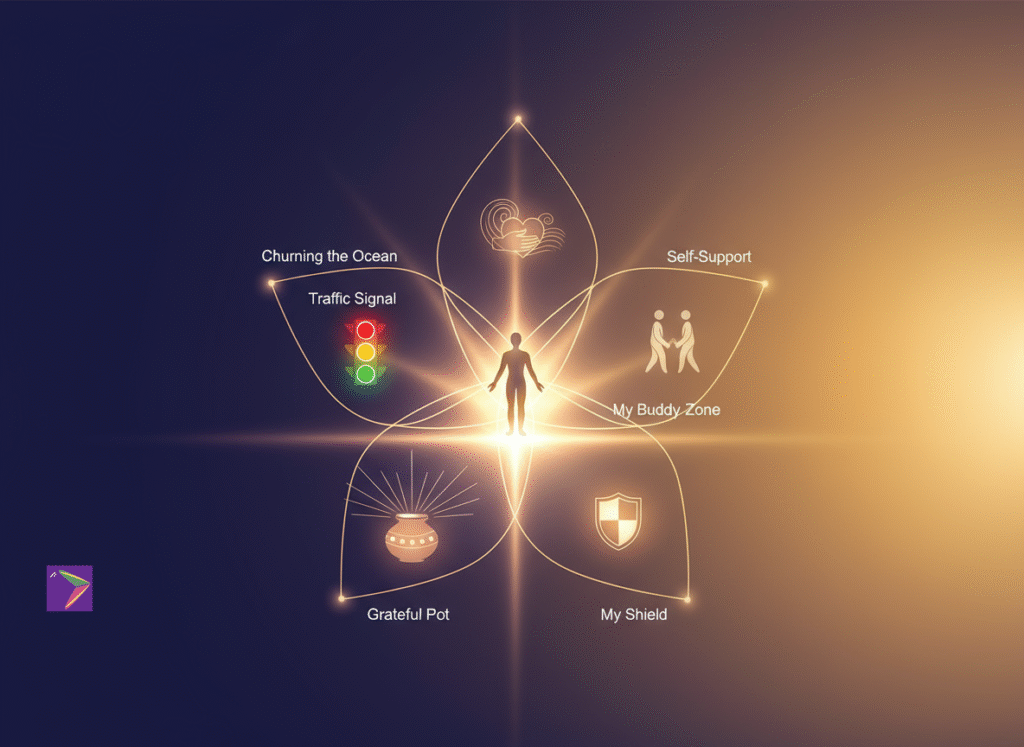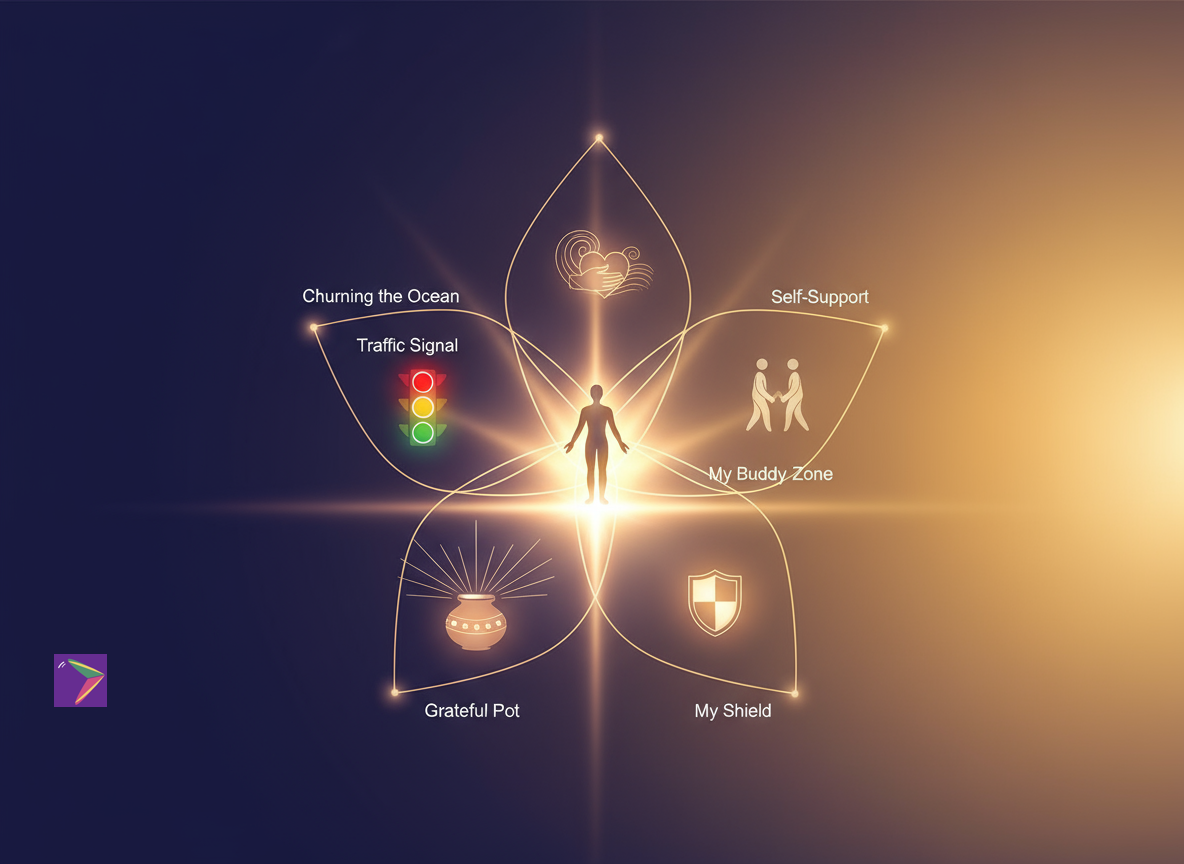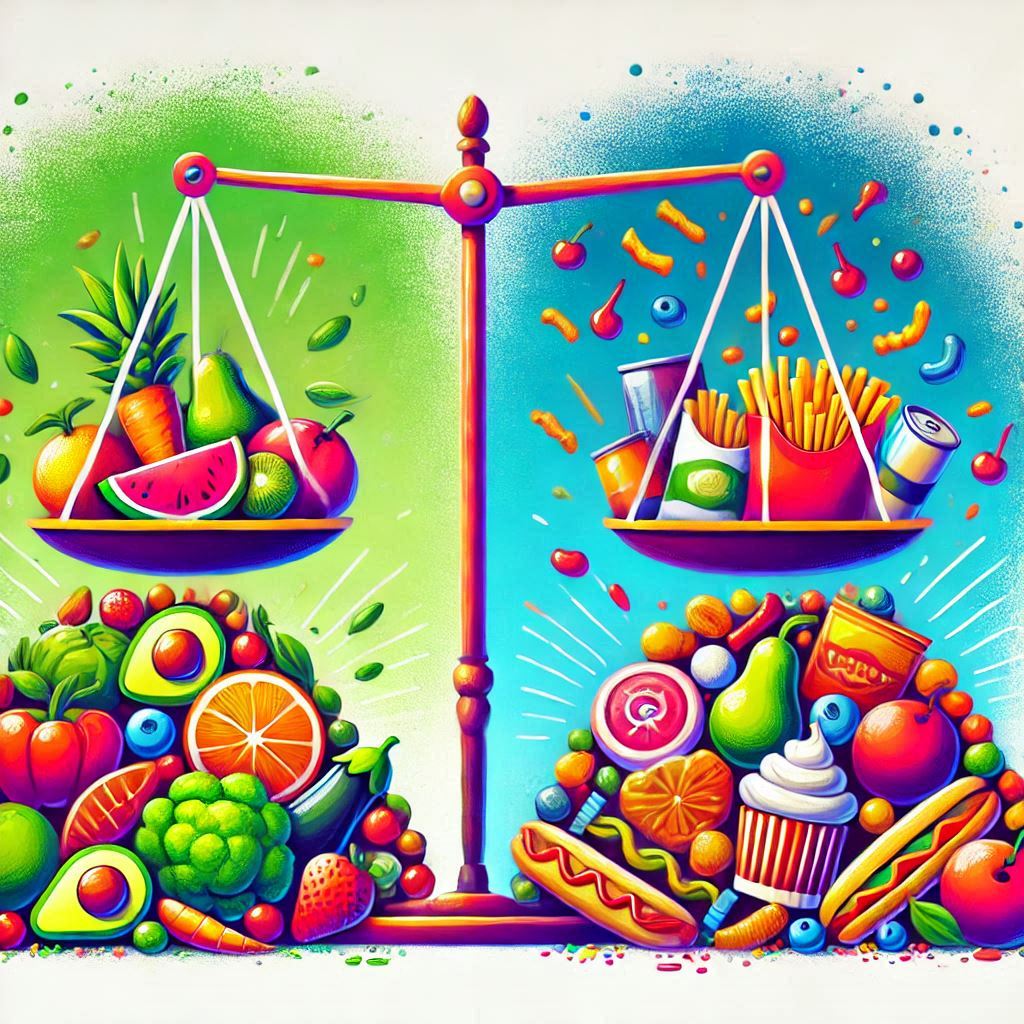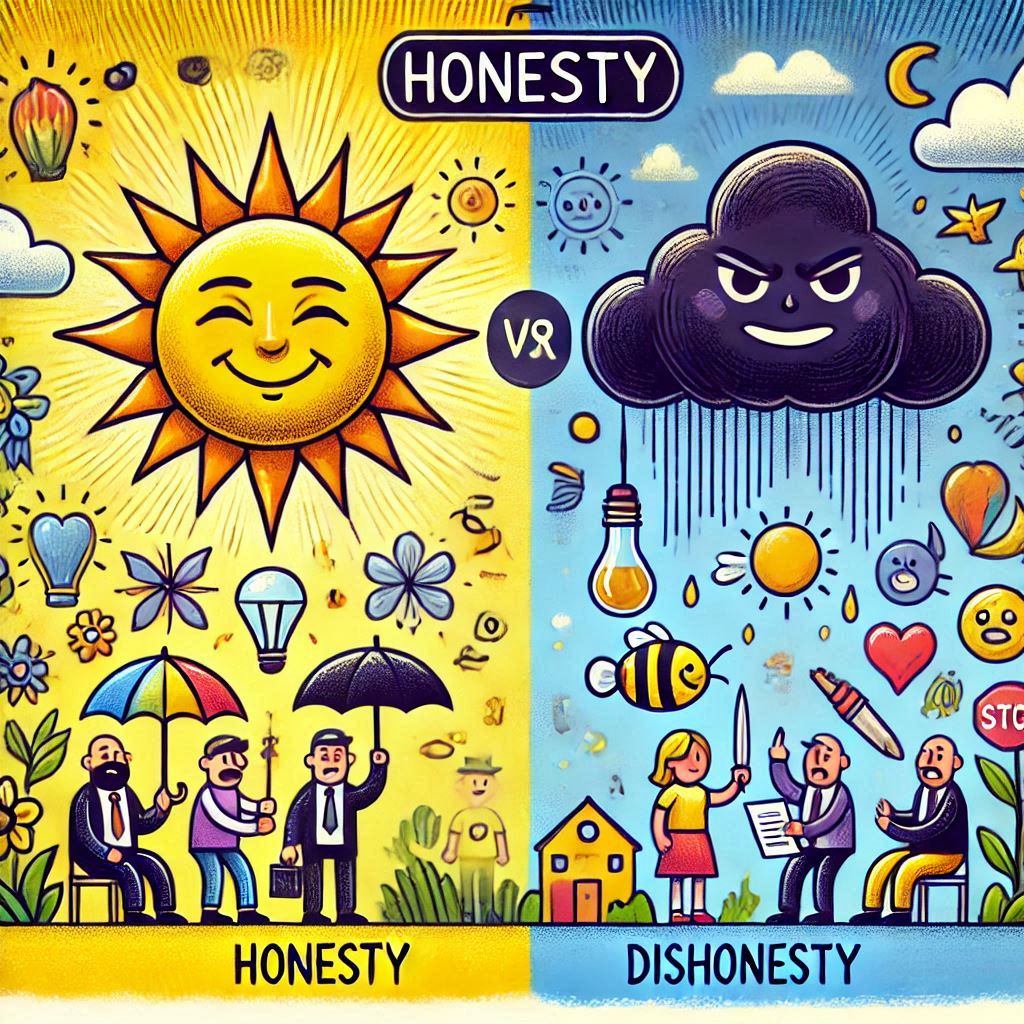Growth Mindset: We all love the idea of “growth.” Growth in career, relationships, or even the number of unread WhatsApp messages (though that’s not quite the growth we want). But the real test of growth lies not in what we achieve, but in how we think when life throws a challenge at us.
That’s where the Growth Mindset comes in — a way of seeing obstacles not as dead ends, but as detours that teach us something new.
And in my book I’m Not Busy, I’ve explored a very practical way to live this mindset through My Action Plan (MAP)— six simple, deeply reflective steps that can turn our everyday struggles into stepping stones.
Let’s see how the Growth Mindset can come alive through each MAP step.
1. Churning the Ocean – Where Growth Begins
Every great journey starts with some churning — the chaos before clarity. Just like in the Indian myth where gods and demons churned the ocean to find nectar, we too must churn our thoughts, fears, and failures to find wisdom.
A Growth Mindset starts here.
Instead of saying, “I can’t do this,” ask, “What is this situation trying to teach me?”
💭 Reflection Tip:
When you face a setback, write down what “poison” (negative belief) you are releasing — and what “nectar” (new insight) you are discovering.
2. Traffic Signal – Pause Before You React
In a Growth Mindset, pausing is not procrastination — it’s wisdom. The Traffic Signal step helps us become aware of our internal “red,” “amber,” and “green” zones.
When failure strikes, our instinct is to either hit the accelerator (overreact) or stall the engine (give up). The Growth Mindset invites us to pause, breathe, and shift gears mindfully.
💭 Reflection Tip:
Ask yourself — Am I reacting from fear (red) or learning from curiosity (green)?

3. Grateful Pot – See Progress, Not Perfection
Gratitude turns mistakes into milestones.
When you adopt a Growth Mindset, you stop comparing your chapter 1 with someone else’s chapter 20. You celebrate small wins, and that’s exactly what the Grateful Pot teaches us.
Every time you acknowledge your efforts — not just results — you reinforce the muscle of resilience.
💭 Reflection Tip:
Each night, drop one “growth gem” into your Grateful Pot — something new you learned today, even if it came through failure.
4. Self-Support – Be Your Own Coach
A Growth Mindset doesn’t mean you never doubt yourself — it means you learn to cheer for yourself despite the doubt.
The Self-Support step reminds you to talk to yourself like you would to a close friend — with kindness and encouragement, not criticism.
💭 Reflection Tip:
When your inner critic speaks, gently ask, “If my best friend were in this situation, what would I tell them?”
5. My Buddy Zone – Learn and Grow Together
Growth is not a solo project.
In I’m Not Busy, I talk about creating a Buddy Zone — a circle of people who uplift, challenge, and reflect you. When you share your journey openly, others mirror your strengths back to you.
A Growth Mindset thrives in community — not comparison.
💭 Reflection Tip:
Find your “growth buddy” — someone who believes in progress, not perfection. Discuss your weekly learnings, not your failures.
6. My Shield – Protect Your Mindset
The final step in MAP is My Shield — building emotional boundaries and self-protection. Growth isn’t always visible; sometimes, it’s happening quietly within.
Your Shield is what keeps the Growth Mindset alive during storms — faith, purpose, spiritual practices, or simply the reminder that you are still growing, even if no one sees it yet.
💭 Reflection Tip:
Ask yourself — What thoughts or influences drain my growth energy? How can I shield myself with awareness and purpose?
The Miracle of Progress for Growth Mindset
When you apply the Growth Mindset through these six MAP steps, life becomes a living classroom.
Failures become feedback.
Challenges become chapters.
And every day becomes an opportunity to expand your inner horizon.
Remember, a Growth Mindset is not about becoming “busy improving yourself.”
It’s about being present while growing.
That’s the heart of I’m Not Busy — to transform our hustle into harmony and our busyness into becoming.
Try This Today
Take one MAP step that resonates with you and apply it to something small — a difficult conversation, a missed opportunity, or even your morning routine.
Growth doesn’t begin with a grand plan.
It begins with a simple action — and your My Action Plan is ready to guide you.





